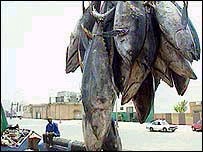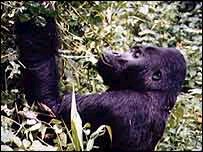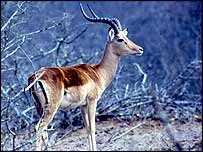|
The European Commission says it wants to "move from access agreements to 'partnership agreements' which contribute to responsible fishing" in its own interest and that of countries like Senegal.
In December 2002 Franz Fischler, the European Fisheries Commissioner, said: the commission aimed "to contribute to the sustainable development of world fisheries and to ensure sustainable and responsible fisheries beyond EU waters as well as within".
The commission says it takes only Senegal's surplus fish: from 1997 to 2001, it says, its catches in Senegalese waters represented only 1.7-3.3% of the total.
Professor Lawton was speaking at a London conference on Coastal zones in sub-Saharan Africa, organised by the Advisory Committee on Protection of the Sea (Acops) and other agencies.
With 40% of Africa's people living in coastal zones, millions of people are vulnerable to changes taking place far inland.
Mountain threat
Another participant, the Kenyan environment minister,
Dr Newton Kulundu, said his "number one priority"
was restoring forest cover to his country.
At independence in 1963, 14.5% of Kenya was tree-covered.
Today the figure is 1.7%, and soil washing off deforested
mountainsides in the interior is choking mangroves on the coast.
|


